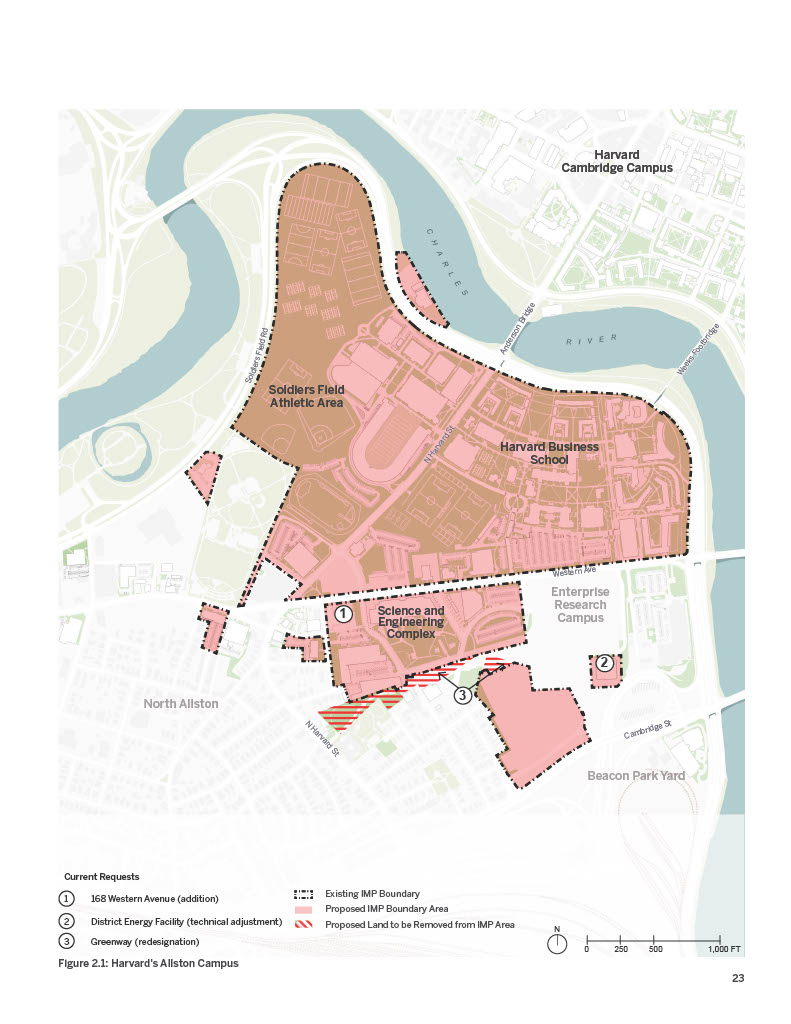
News
Summers Will Not Finish Semester of Teaching as Harvard Investigates Epstein Ties

News
Harvard College Students Report Favoring Divestment from Israel in HUA Survey

News
‘He Should Resign’: Harvard Undergrads Take Hard Line Against Summers Over Epstein Scandal

News
Harvard To Launch New Investigation Into Epstein’s Ties to Summers, Other University Affiliates

News
Harvard Students To Vote on Divestment From Israel in Inaugural HUA Election Survey
Harvard Kicks Off Public Engagement Process For 10-Year Allston Master Plan

Harvard submitted their Institutional Master Plan Notification Form to the city of Boston Thursday, formally kicking off a yearlong process of public engagement over its 10-year plan for the University’s quickly-growing Allston campus.
Harvard first presented a new IMP at a city meeting hosted by the Boston Planning and Development Agency in January, announcing six major projects including a renovation of Harvard Stadium, a new office building for Harvard Business School, and a mixed-use academic and retail project.
The projects total 720,000 new square feet of development.
The Institutional Master Plan process is mandated by Article 80 of Boston’s zoning code, which covers local review of large projects. The IMP details Harvard’s current institutional holdings in Allston and plans for future development and analyzes the projected impacts on the surrounding area.
Harvard’s filing found that while half of the six projects would not generate more traffic or demand for transportation, the other three — the Harvard Business School office building, a Crimson Catering facility, and the mixed-use “Gateway Project” — would increase traffic, though the document did not say by how much.
Harvard also reaffirmed its commitment to housing 50 percent of its graduate students, a standard it said it is currently on track to meet.
To see their development plan approved, Harvard will have to propose new community benefits — public services required by the city to mitigate the impact of the University’s projects and “enhance the surrounding communities.” Harvard will negotiate the benefits in the coming months with the Harvard Allston Task Force, a city-appointed group of residents and local advocates.

According to Harvard’s filing, the University will provide “community benefits commensurate with the size and scale of the institutional projects anticipated within the ten-year IMP duration” with input from Allston residents.
Previously. Harvard funded an Allston-Brighton Community Needs Assessment conducted by the City of Boston, which the University wrote “will inform Harvard’s IMP community benefits proposal.”
The needs assessment was met with frustration by many residents and local advocates, who criticized the document’s accessibility and utility.
Harvard’s past community benefits include the Harvard Ed Portal, the Harvard Allston Partnership Fund, and the Harvard Allston Housing Fund.
The IMP applies to any campus developments Harvard intends to pursue but does not apply to its commercial developments or holdings.
As a result, Harvard’s Enterprise Research Campus, its land holdings in Beacon Park Yard — the site of the planned Massachusetts Turnpike Realignment — and its scattered commercial properties do not fall under the IMP mandate.
According to the filing, Harvard has 184 acres of institutional land and 62 institutional buildings in Allston, mostly split between HBS and athletic facilities.
—Staff writer Jina H. Choe can be reached at jina.choe@thecrimson.com.
—Staff writer Jack R. Trapanick can be reached at jack.trapanick@thecrimson.com. Follow him on X @jackrtrapanick.
Want to keep up with breaking news? Subscribe to our email newsletter.
